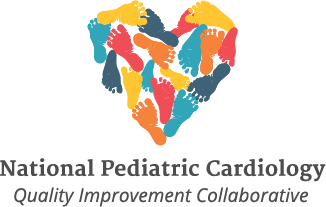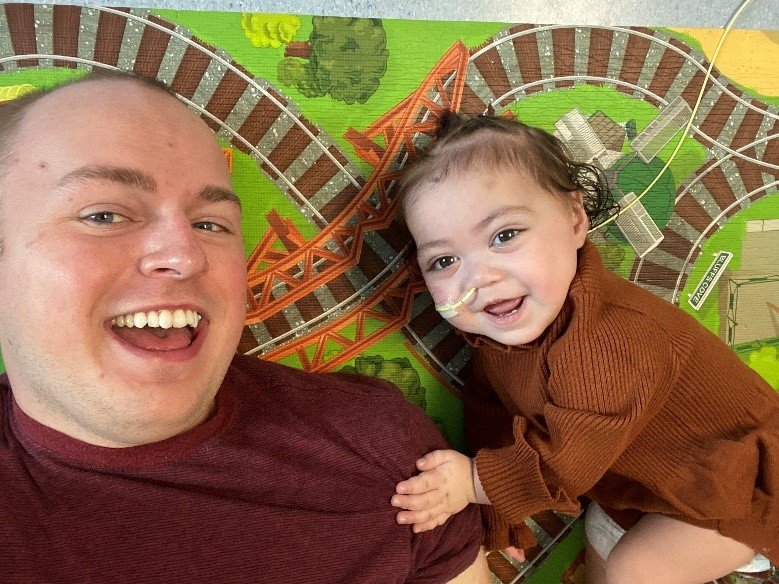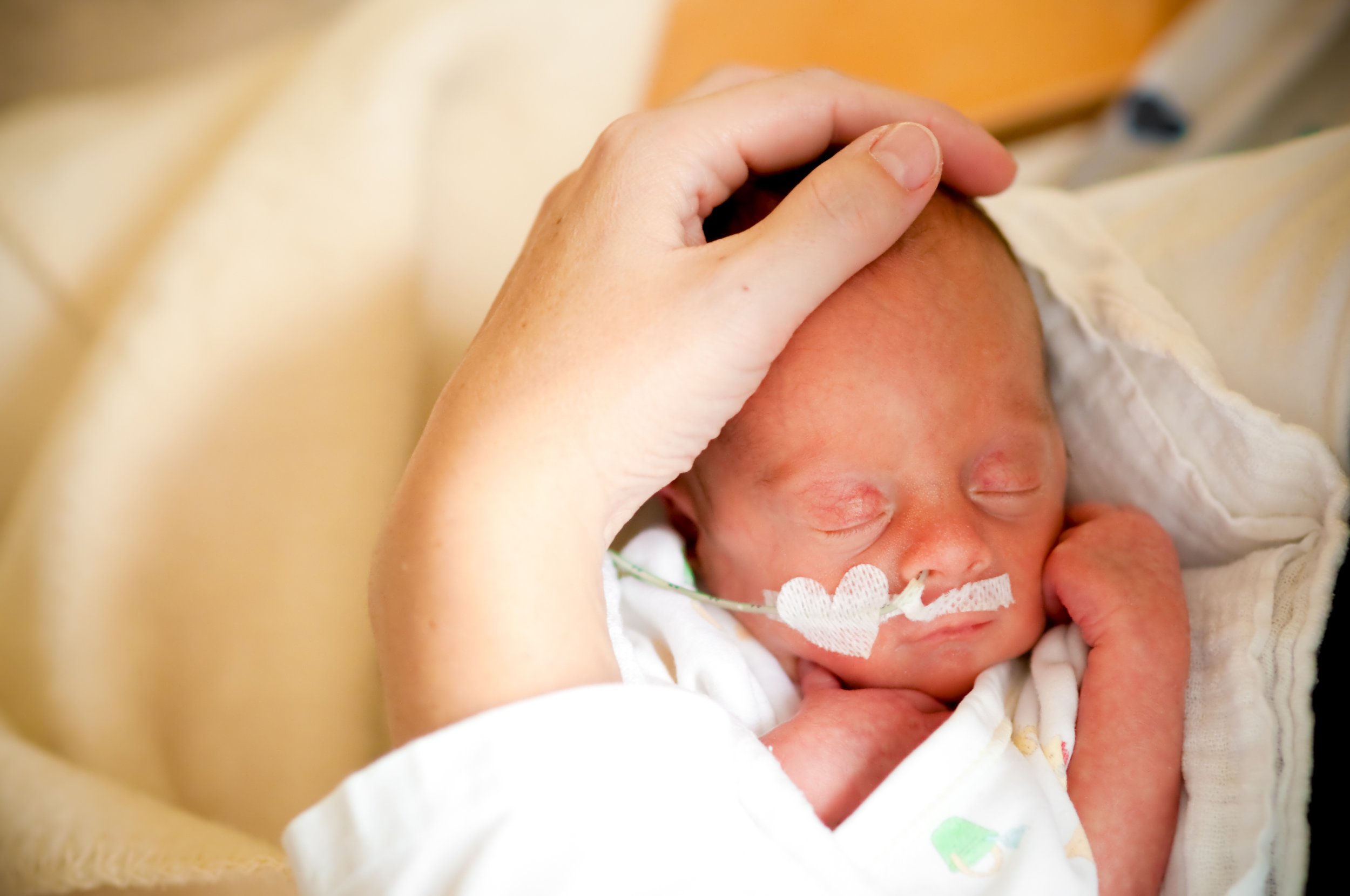
TOOLS & RESOURCES
UNPLANNED REINTERVENTIONS TOOLKIT
(NPC-QIC MEMBERS ONLY)
As a reminder, all data information is confidential, intended solely for the knowledge and use of NPC-QIC members, and shall not be disclosed or shared. NPC-QIC members have a responsibility to maintain patient privacy and the confidentiality of all NPC-QIC member centers. Any disclosure, copying, distribution, or use of this information is strictly prohibited.
Through prior research, NPC-QIC and other investigators have demonstrated that the need for unplanned reinterventions is a risk factor for both short- and long-term outcomes. The Unplanned Reintervention toolkit aims to decrease the clinical impact of unplanned reinterventions after Stage 1. We believe that the early identification of patients who may require unplanned reintervention can improve the associated survival and reduce morbidity associated with these procedures. This toolkit will guide centers in developing and utilizing planned post-operative evaluations and common clinical post-operative milestones to help identify patients that are at higher risk for unplanned reinterventions. The toolkit will provide examples to help centers determine the next steps for patients who are not meeting clinical milestones.
After viewing the modules and supplemental materials, centers can implement this toolkit through following sequential steps to ensure care is standardized and optimized.
Due to the inclusion of collaborative data, the toolkit is located on the NPC-QIC SharePoint site and is only accessible to NPC-QIC member centers. After you click the Toolkit link on the NPC-QIC website you will automatically be re-directed into SharePoint at which point you will need to sign in. Contact info@npcqic.org for assistance if you have any issues signing in to the SharePoint site to access the toolkit.
SINGLE VENTRICLE JOURNEY: A GUIDE FOR PARENTS & FAMILIES
Co-developed by parents and clinicians, the purpose of the Guide is to offer support, information, and resources to families from birth to Fontan and beyond with HLHS.
Please feel free to print off (internally with an inkjet or laser printer) and use/distribute the Single Ventricle Guide. If you or your care center would like to have the guide professionally printed and bound, please contact info@npcqic.org and we will provide the proper high-resolution, press-ready pdf files with crop marks and bleeds for you to give to your print vendor.
Single-Page View: Single Ventricle Journey: A Guide for Parents and Families
Two-Page Spread View: Single Ventricle Journey: A Guide for Parents and Families
En Español: Experiencia con el ventrículo único: guía parapadres y familias
HOW TO USE NPC-QIC TOOLKITS
How To Use NPC-QIC’s Toolkits is a short guide to assist your pediatric cardiology center to achieve your improvement goals related to NPC-QIC’s improvement work. Thinking through each section outlined below will position quality improvement teams to maximize the learnings shared within each toolkit.
ORAL FEEDS PRIOR TO STAGE 1 SURGERY TOOLKIT
The NPC-QIC Oral Feeds Prior to Stage 1 Surgery Toolkit: The Preoperative Feeding Project was established to improve the quality of life for infants with single ventricle heart disease and their families by increasing opportunities for nutritional and neurodevelopmental oral feeding experiences prior to Stage I surgical palliation. According to data from the NPC-QIC in 2021, 54% of patients with single ventricle disease receive enteral feeding experiences prior to Stage I surgical palliation. Of the 56 centers contributing data to NPC-QIC, over 90% reported allowing pre-operative oral feeding, up from 25% in 2016. The Oral Feeds Prior to Stage 1 Surgery Toolkit is designed to provide expert guidance on identifying candidates for preoperative feeding and instituting a preoperative feeding protocol.
OPTIMIZING NEURODEVELOPMENT & SUPPORTING INFANT GROSS MOTOR OUTCOMES TOOLKIT
This toolkit was created to share intervention strategies to promote optimal gross motor outcomes and describes supportive developmental care practices for both hospital and home settings. The target audience for this toolkit is interdisciplinary professionals and parents caring for infants with single ventricle CHD. The information in this toolkit can also be shared with infants’ medical home providers, early intervention professionals, and key stakeholders, such as hospital administrators.
Optimizing Neurodevelopment & Supporting Infant Gross Motor Outcomes Toolkit
TUBE WEANING TOOLKIT
Supplemental nutrition delivered via feeding tube is often unavoidable in the journey of a patient with single ventricle physiology, which can be provided both as the sole source of nutrition or as a supplement to oral feedings. One of NPC-QIC’s goals has been to increase the percentage of patients weaned from feeding tube by their first birthday.
To help meet this goal, parents and clinicians co-developed the Tube Weaning Toolkit, which is a concise and practical resource that provides education and expert guidance. Toolkits focus on a specific condition, care processes that provide background material, summary of evidence and best practices, as well as specific tools, strategies, and examples that can be applied to improvement work. In this instance, on the tube weaning process.
UPDATED INTERSTAGE CHANGE PACKAGE
The “Interstage” is the time period, typically 4-6 months, between the first surgical palliation (SP1 – typically a Norwood procedure) and the second (Glenn) operation. It is historically a time of risk for HLHS infants.
Since the Collaborative’s inception, NPC-QIC centers and parent partners have worked together to improve care and outcomes during the Interstage period.
This change package outlines strategies for NPC-QIC clinicians, parents and researchers to use as they begin or advance Interstage quality improvement (QI) efforts.
PSYCHOLOGICAL ASPECTS OF LIVING WITH CONGENITAL HEART DISEASE: INFORMATION FOR PATIENTS AND FAMILIES
The authors of a scientific statement from the American Heart Association entitled "Psychological Outcomes and Interventions for Individuals with Congenital Heart Disease: A Scientific Statement from the American Heart Association" have created a companion resource specifically for patients and families. Access the resource via the link below.
Psychological Aspects of Living with Congenital Heart Disease: Information for Patients and Families
PARENT’S GUIDE TO TRANSPARENCY
NPC-QIC continues to strive for transparency. A step in this journey includes Centers sharing seven measures during the October 2018 Learning Session. The goal is for 80% of Centers to grant permission for their data to be identified for this session. Ideally, October will serve as an opportunity to discuss how sharing transparently will drive quality improvement and how the network can move toward public transparency.
While these seven measures will not be reported externally/publicly, parents can still be involved:
Read-up on how the Network will report data transparently by using Funnel Plots. Here is a tip sheet created by the Transparency Learning Lab for Clinicians and Families to understand how to use this data report.
Advocate. Ask and promote your respective Center participating in October by agreeing to share transparently during the Learning Session.
PARENT’S GUIDE TO HLHS
Our Family Cares (formerly Patient and Family Support) Learning Lab sponsors a network of parents, clinicians, and researchers who aim to improve HLHS patient and family support. One of their projects was to develop Parent's Guides to HLHS. The purpose of these guides is to offer support, information and resources to families during their first year with HLHS. They have been co-developed by parents and clinicians and are in the format of a bulletin:
We also have Spanish versions of each available:
HEART UNIVERSITY WEBINARS
NPC-QIC and the Fontan Outcomes Network (FON) were invited by Heart University to co-sponsor a yearlong webinar series for global learning and engagement to improve the care of patients with single ventricle physiology. Hosted by Heart University, the “Global Single Ventricle Learning Series” is a six-webinar collaboration between parents, physicians, and various Care Center team members taking place August 2020 through June 2021.
Video recordings of the presentations will be published at the page linked below as they become available. See the image to the left for webinar dates, times, and topics.
IHI OPEN SCHOOL
The Institute for Healthcare Improvement Open School features a robust collection of dozens of online improvement courses that are self-paced and available to all teams participating in NPC-QIC. To access the courses, follow the steps outlined below.
Create an account through the IHI Portal.
Email Vicki Gall and let her know you have completed your registration. She will provide you with the access code and instructions to enroll in courses under Cardiac Networks United’s subscription.
Please reach out to info@npcqic.org with any questions.
NPC-QIC is proud to partner with Sisters By Heart (SBH) whose mission is to provide support, education, and empowerment to families affected by Hypoplastic Left Heart Syndrome. This partnership has been vital for NPC-QIC and has catalyzed our efforts to co-produce health the HLHS community. In addition to the resources below, please view the SBH website.





















